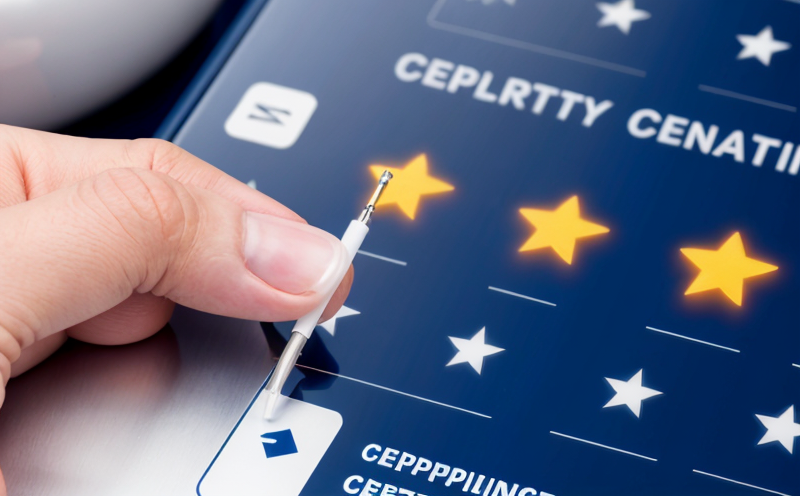PMDA (Japan) Medical Device Certification Testing
The Pharmaceutical and Medical Devices Agency (PMDA), a part of Japan’s Ministry of Health, Labour and Welfare, is responsible for regulating the safety, quality, and efficacy of medical devices. Compliance with PMDA regulations ensures that devices meet rigorous standards before they can be introduced into the Japanese market. This service focuses on providing comprehensive testing and certification services to assist clients in meeting these stringent requirements.
The process involves several stages: initial review, design verification testing, clinical evaluation, non-clinical studies (including biocompatibility), sterilization validation, and post-market surveillance. Each stage is critical for ensuring that the medical device not only functions as intended but also poses no harm to users or patients. The service encompasses a wide range of tests including, but not limited to, mechanical testing, electrical safety checks, chemical analysis, biological compatibility assessments, and sterility testing.
Our team of experts is well-versed in the latest PMDA guidelines and international standards such as ISO 10993 for biocompatibility, IEC 60601 for electrical safety, and EN 50081 for electromagnetic compatibility. This ensures that we can provide precise testing services tailored to each client’s unique needs.
The certification process is time-consuming and requires meticulous attention to detail. Our team works closely with clients throughout the entire process, offering guidance on specimen preparation, instrumentation setup, and data interpretation. By leveraging our extensive experience in this field, we help ensure that every aspect of the testing meets PMDA standards.
Failure to comply with PMDA regulations can result in significant delays or even bans on the market entry of medical devices. Therefore, it is crucial for companies operating in Japan or looking to export their products there to have robust certification processes in place. Our service aims to provide clients with the necessary tools and knowledge to navigate these complexities successfully.
Our services extend beyond mere compliance; they also focus on helping businesses gain a competitive edge by ensuring that their products meet not just regulatory requirements but also exceed industry expectations. This comprehensive approach ensures that our clients are well-prepared for both domestic and international markets.
International Acceptance and Recognition
- The Pharmaceutical and Medical Devices Agency (PMDA) certification is internationally recognized, particularly within the Asia-Pacific region. Many companies choose to obtain this certification not only for access to the Japanese market but also as a demonstration of their commitment to quality.
- Several other regulatory bodies accept PMDA certifications, including FDA (US), MHRA (UK), and EMA (European Medicines Agency). This broad acceptance highlights the rigor and credibility associated with PMDA standards.
| Region | Certification Bodies Accepting PMDA Certifications |
|---|---|
| Asia-Pacific | PMDA, TGA (Australia), HSC (Hong Kong) |
| Europe | PMDA, EMA |
| United States | FDA |
Competitive Advantage and Market Impact
Obtaining PMDA certification provides several competitive advantages that can significantly impact a company's market position:
- Enhanced credibility: A PMDA certification demonstrates a strong commitment to quality and patient safety.
- Broad market access: The certification opens doors to the Japanese market, one of the largest medical device markets in the world.
- Increased trust from stakeholders: Regulatory compliance signals reliability and integrity, which are crucial factors for healthcare providers and consumers alike.
- Facilitated international expansion: Companies that have already met PMDA requirements may find it easier to comply with other regulatory bodies due to the shared standards.
Beyond these direct benefits, PMDA certification also fosters innovation by encouraging companies to explore new technologies and practices. By adhering to high-quality standards early on, firms can better position themselves for future growth opportunities and maintain a strong reputation in the industry.
Moreover, compliance with PMDA regulations helps reduce potential risks associated with non-compliance, such as product recalls or legal actions. This proactive approach not only protects brand image but also contributes to long-term sustainability and profitability.
Use Cases and Application Examples
- Companies developing new medical devices seeking entry into the Japanese market.
- Manufacturers looking to expand their portfolio of certified products internationally.
- Start-ups in need of expert guidance through the complex certification process.
| Device Type | PMDA Certification Requirements |
|---|---|
| Surgical Instruments | Mechanical testing, biocompatibility assessment, sterilization validation. |
| Dental Implants | Biocompatibility evaluation, clinical efficacy studies. |
| Cardiovascular Devices | Electrical safety checks, mechanical durability tests. |





